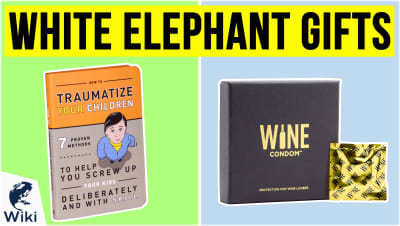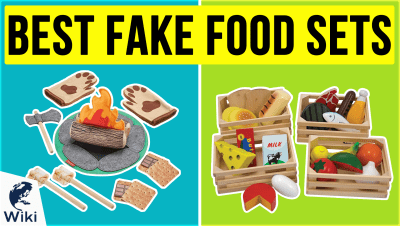7 Genealogy Organizations That Help People Discover Their Ancestry
Whether you're trying to find your biological father or discover who your ancestors were, genealogy can help you learn more about where you come from. The resources listed here range from local societies coming together to share research to DNA testing companies to non-profits working to make sure that genealogical records are available to the public. If you're interested in ancestry, consider checking them out. This video was made with Ezvid Wikimaker.
Groups That Help People Find Their Roots
| Name | Mission |
|---|---|
| Legacy Tree Genealogists | Help people discover, document, and preserve the stories of their ancestors |
| New York Genealogical and Biographical Society | Preserve, document, and share the stories of families across the state of New York |
| DNA Testing Adviser | Act as an independent guide to DNA testing for genealogists, adoptees, and anyone interested in paternity or other relationship testing |
| Abundant Genealogy | Offer genealogy and family history resources for free |
| Southern Indiana Genealogical Society | Encourage, gather, and preserve genealogy materials and information in the seven southern Indiana counties of Clark, Crawford, Floyd, Harrison, Perry, Scott, and Washington |
| Reclaim The Records | Identify important genealogical record sets that are not broadly available to the public, use state Freedom of Information laws to force government agencies and archives to hand over copies of these records to the public, then digitize and put them online for free use |
| The DNA Geek | Use genealogical DNA results to help adoptees and others find biological family |
Reasons To Learn Your Family History
- Find out more about your medical history
- Preserve traditions
- Reconnect with family you never knew
- Find out fascinating stories
- Discover the impact your ancestors had on the world
- Pass on a richer story to the next generation
How To Grow Empathy From Uncovering Your Roots
What Is Genetic Ancestry Testing?
According to the National Institutes of Health, genetic ancestry testing, or genetic genealogy, is a way for people interested in family history (genealogy) to go beyond what they can learn from relatives or from historical documentation. Examination of DNA variations can provide clues about where a person's ancestors might have come from and about relationships between families. Certain patterns of genetic variation are often shared among people of particular backgrounds. The more closely related two individuals, families, or populations are, the more patterns of variation they typically share.
5 Places To Start Your Genealogy Research
If you want to do some research on your own, and you have family from the United States, these National Archives resources can help you get started:
Why Human Ancestry Matters
In Depth
Many people around the world find themselves wondering about their ancestral lineage, whether out of a passion for history, questions about their health, a desire to connect with relatives they've never known, or any number of other reasons. Thanks to advances in genetic testing, digital record-keeping, and the rise of the internet, it's easier than ever before to find answers. In no particular order, here are seven resources for those interested in learning more about their family history.
Leading off at #1 is Legacy Tree Genealogists, a company which employs a team of skilled professional ancestry researchers to help clients learn where they came from. Based near the largest family history library in the world, in Salt Lake City, they work with a network of investigators around the world to find elusive records and trace heritage back through multiple generations. The final reports received by clients incorporate historical images and documents, as well as suggestions for further research in case recipients want to continue digging on their own.
The services Legacy Tree offers include ancestral DNA analysis, forensic genealogy for settling questions of inheritance and kinship, and writing customized family biographies. They share success stories like helping a client confirm descent from a Revolutionary War soldier, or tracing Southern heritage despite records fragmented by wars and disasters. The company also publishes articles discussing techniques of genealogical research, such as hunting through special collections in university libraries, or using land records to fill gaps in a family tree.
They share success stories like helping a client confirm descent from a Revolutionary War soldier, or tracing Southern heritage despite records fragmented by wars and disasters.
Next on the list at #2 is the New York Genealogical and Biographical Society, dedicated to preserving, documenting, and sharing the state's family histories. This organization maintains an extensive catalog of digital records, as well as several physical collections housed at the New York Public Library, to enable ancestry research by members. They also operate a searchable database detailing other public repositories where investigators can locate important documents. For those needing assistance uncovering their roots, they offer research services including consultations and in-depth projects.
Along with their archives and services, the Society hosts a number of educational events, most notably the New York State Family History Conference, which brings together investigators and enthusiasts of all experience levels to learn and connect. They also have a number of publications, including a quarterly journal documenting crucial historical records, and a comprehensive textbook for New York genealogical researchers. And through their blog they share informational articles about uncovering ancestry. Supporters can volunteer, make a donation, or sign up as members.
Entry #3 is DNA Testing Adviser. This project is the work of Richard Hill, the author of Finding Family, which tells his story of searching for his origins after learning he was adopted. Aimed at educating people about the uses of genetic testing for researching heritage, this resource provides articles on topics such as birth parent searches, filling gaps in family trees, and gaining detailed information about ethnic makeup.
Aimed at educating people about the uses of genetic testing for researching heritage, this resource provides articles on topics such as birth parent searches, filling gaps in family trees, and gaining detailed information about ethnic makeup.
Hill works to inform consumers about their options for commercial genetic testing, providing guides on topics such as personal genomics for health information, paternity confirmation, and forensic DNA. He gives background information about key issues like understanding how genes can establish familial relationships, or what considerations should go into selecting a lab. He also provides a free e-book on genetic analysis in ancestry research, and delivers lectures at a variety of speaking engagements. Those interested in contributing to his work can donate online.
Next in our rundown is #4, Abundant Genealogy, a hub for free and budget resources on family history research. Created by author and educator Thomas MacEntee, it provides numerous informational guides to help investigators in searching out their roots, covering subjects like preparation for research trips, preserving oral history within families, and making effective use of metadata when storing images. The project provides lists and links to useful tools available elsewhere, such as free educational materials from genealogy companies or digital databases from public libraries.
Alongside their many downloadable tutorials and digital resource overviews, Abundant Genealogy publishes articles discussing specific topics in heritage research, such as researching an ancestor's social circles or selecting a DNA testing option. They also host The Archive Lady, an advice column by archivist Melissa Barker with tips on preserving historical artifacts and conducting research using records repositories. And MacEntee provides a number of free webinars and low-cost e-books drawn from his long-time experience in genealogy.
They also host The Archive Lady, an advice column by archivist Melissa Barker with tips on preserving historical artifacts and conducting research using records repositories.
Coming in at #5 is the Southern Indiana Genealogical Society, formed in 1979 to preserve and celebrate the history of the region. At their monthly meetings in the Floyd County Library, members gather for educational presentations on notable figures in the state's past, or discussions on methods for researching particular kinds of family history. Past subjects have included interpretation of DNA testing results, or creating authentic costumes for reenacting.
One of the major initiatives of SIGS is their First Families project, aiming to honor the legacies of the region's early settlers. Residents who can establish that they are descended from these pioneers are honored at the annual Hoosier History & Heritage Celebration, a gathering featuring local entertainment, educational displays, and period-appropriate costumes. New inductees are presented with certificates recognizing them as members of the First Families.
#6 on the list is Reclaim The Records, a not-for-profit activist group fighting for access to genealogical documents that are restricted by government archives, libraries, and agencies. Believing that records held by taxpayer-funded institutions should be freely available to citizens, this organization files legal challenges using Freedom of Information laws, to compel release of these biographical and historical materials to the public.
Believing that records held by taxpayer-funded institutions should be freely available to citizens, this organization files legal challenges using Freedom of Information laws, to compel release of these biographical and historical materials to the public.
Notable successes by Reclaim The Records include the creation of the online New York City Marriage Index and the statewide Nebraska Death Index, both resulting from the group's legal actions. They also work to improve availability of existing documents, with projects including a digital database of Mississippi death records or their imaging of reference information for marriage certificates in New Jersey. They share a variety of presentations, slides, and webinars to educate the public about their mission. Supporters can help by donating, or contributing to their survey of restricted archives.
We'll close with #7, The DNA Geek, a company that helps clients use the results of commercial genetic tests to find relatives and ancestors. Its creator, Doctor Leah Larkin, has an academic science background with a specialty in the analysis of genomic markers for species relatedness. She offers full-service genealogical research, building family trees based on profiles from companies like AncestryDNA, as well as mentoring for those looking to build their own investigative skills.
The DNA Geek conducts education and outreach in addition to working for clients, delivering informational presentations to genealogical societies and conferences to help advance the field. The company's blog posts articles explaining key concepts in genetics, such as mitochondrial DNA or how mutations arise in the genome, along with news about the world of ancestry research and advice on how to pursue investigations. Doctor Larkin also writes frequently about privacy issues resulting from genetic databases, arguing for the importance of informed consent for any release of information.





















